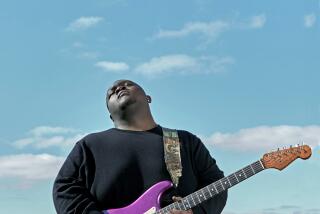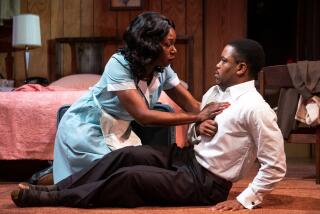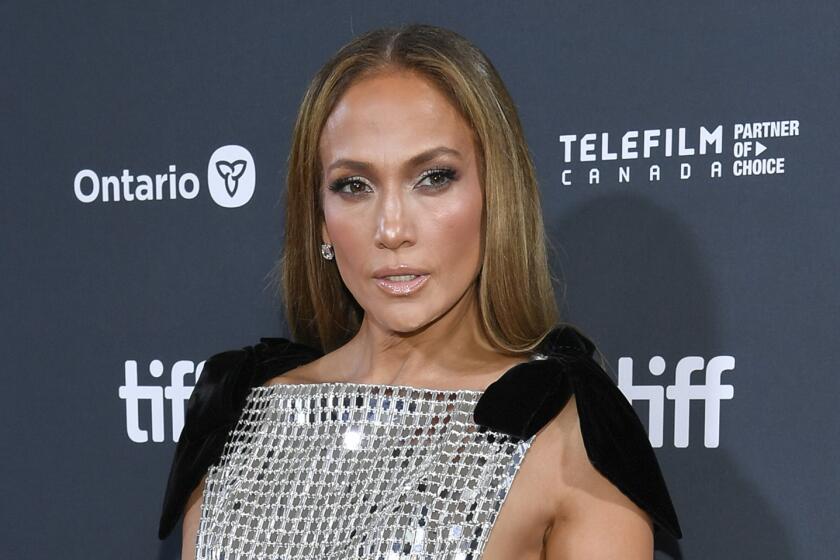Blue Over the Blues
B.B. King had a case of the blues.
Thinking about blacks and blues was getting him down. The esteemed blues singer-guitarist, who’s playing tonight at the Celebrity Theater in Anaheim, has long been upset about the way blacks--the younger generation in particular--treat blues music.
“They don’t know anything about it and they don’t want to know anything about it,” laments the 63-year-old Mississippi native who’s been a titan of the genre since the late ‘40s. “The roots of pop music--rock, R&B;, rap, you name it--are blues. Blues is black music. It should be supported by black people. They should be proud of it. To the young blacks, blues is a dirty word.”
Whites, he says, are more into blues and have done much more to popularize it than blacks. It was white rock stars like Eric Clapton and the Rolling Stones, whose music has strong blues roots, who introduced veteran bluesmen like King to the pop masses in the late ‘60s. He’s been prospering, mainly due to the support of white fans, ever since.
In recent years, his records with black artists, such as the Crusaders, Stevie Wonder and Grover Washington Jr. caused hardly a ripple in the pop mainstream. But King is suddenly a hot property now because he sings with Irish rockers U2 on “When Love Comes to Town,” one of the tracks on the Top Five U2 album “Rattle and Hum.”
King’s new MCA album, “King of the Blues: 1989”--which, incidentally, features white, blues-oriented artists like Mick Fleetwood and Bonnie Raitt--should benefit from the U2 boost.
“What happened with U2 is that they came backstage at a Dublin concert I did a few years ago,” King says. “(U2 singer) Bono said he wanted to write a song for me. He contacted me early this year with a song he wanted me to record with them.
“That song has given me great exposure to the rock audience. As a result, the crowds at my concerts are bigger and much younger.”
But, to King’s chagrin, the crowds aren’t much blacker.
And black radio, he charges, hasn’t been any help: “They don’t play blues. They say their audiences don’t want to hear it.”
King cites what he says is a glaring example of black indifference to the blues that really disturbed him. He played a sold-out blues festival on the campus of Howard University, which is nearly all black. The crowd? King estimates it was a startling 90% white.
More to Read
The biggest entertainment stories
Get our big stories about Hollywood, film, television, music, arts, culture and more right in your inbox as soon as they publish.
You may occasionally receive promotional content from the Los Angeles Times.










